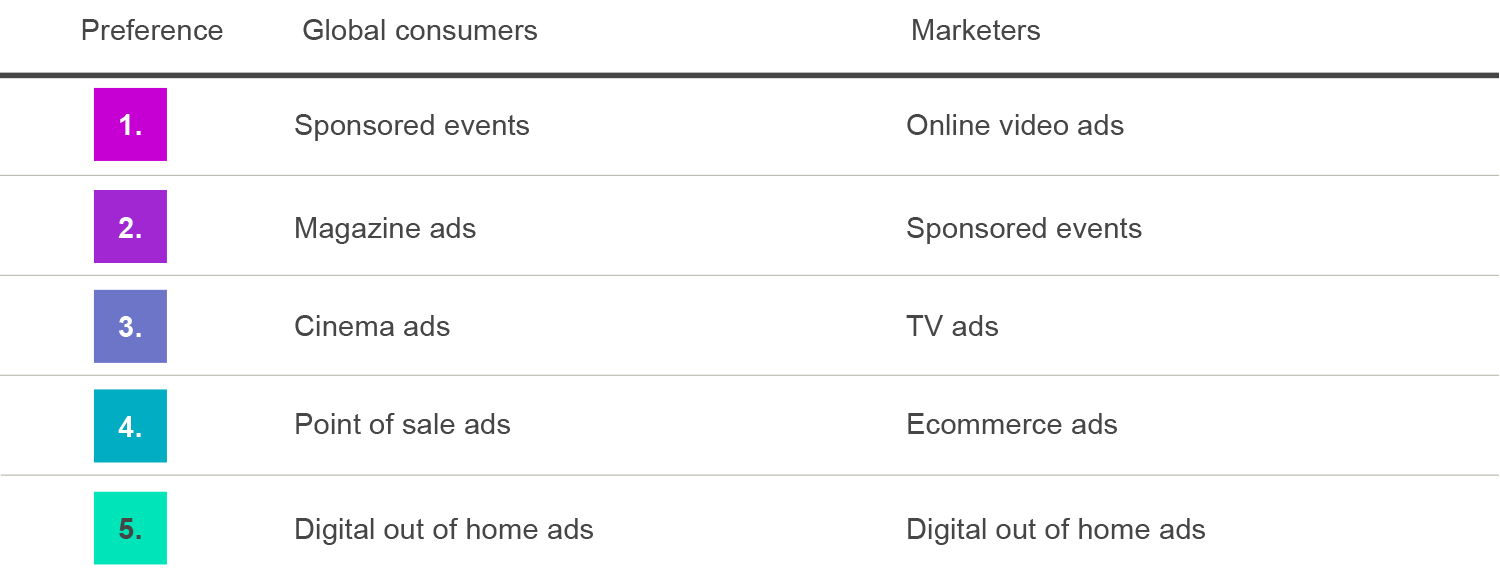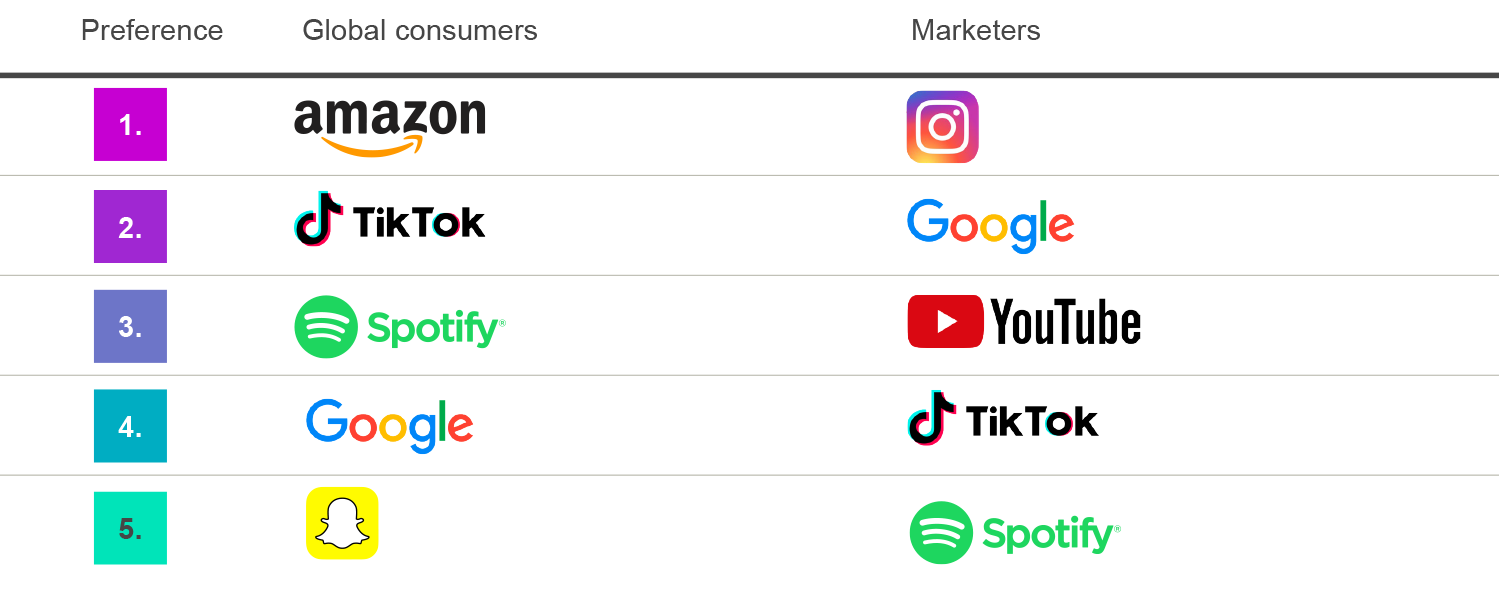2022 continues to be a challenging time for media investment. Budgets were quick to be cut when the pandemic hit, then came back with the economic recovery in 2021. Now brands and media face inflationary pressures, advertising trends continue to see the number of digital advertising platforms explode, and marketers plan to spend even more on digital.
When marketers are making investment decisions, they want to make sure they’re getting the best bang for their buck. But how?
Read on for information about the importance of advertising context, and the lessons marketers can learn from the media insights in this year’s 2022 Kantar Media Reactions report.
Why does ad placement matter?
An ad environment – which encompasses everything from the platform to the channel on which the ad is placed – is a key factor for any marketer to consider when planning media investment and potential ROI. But why is the ad environment so important?
In advertising, context is critical. Campaigns are seven times more impactful among a receptive audience – so it is essential to know what consumers think of media channels and brands to identify the most effective ones for your brand.
The media environment continues to evolve rapidly and, “in inflationary times, marketers need to make careful choices” says Jane Ostler, EVP, Creative and Media solutions at Kantar.
“Marketers continue to be lured by the siren call of the new and shiny, such as embracing attention as a new metric and the metaverse as a new channel – but it is imperative to maintain a holistic understanding of ad platforms and what consumers think of them.”
So, how do you identify what will work best for your brand? And how can you follow, and adapt, to the latest advertising trends?
When it comes to choosing a platform or channel for your advertising campaign, there is no one-size-fits-all. Some media environments will be naturally more suited to your brand, comms strategy or campaign objectives, and some won’t. It’s important to get this right – as we have seen, advertising context can affect the success of your campaign.
How can Kantar Media Reactions help?
Kantar Media Reactions takes some of the guesswork out of choosing the right ad platform for your brand. It is an annual study exploring the evolving media landscape, this year with insights from around 18,000 consumers and 1,000 marketers around the world. Providing key media insights, it is the only global ad equity evaluation of media channels and media brands among consumers and marketers.
The report uses Kantar’s Ad Equity metric, which uniquely identifies the places where consumers most appreciate advertising and are least likely to view ads negatively. It provides a comprehensive view of the current media landscape, how it has evolved and how to navigate it.
We’ve seen some very interesting trends in consumers’ receptivity towards advertising this year. People don’t usually seek out advertising - and often avoid it. But this year’s Media Reactions study shows a positive new trend in advertising equity among consumers. They have more favourable attitudes towards advertising on media channels and they are more receptive to advertising compared to last year. So what does this mean for marketers? How can this positive momentum be maintained?
Let’s look at some of the key findings from this year’s 2022 report.
Top-ranking media channels
This year’s media trends research shows that offline channels continue to dominate the top-ranking media channels among consumers. Across all media channels, consumers are most positive about advertising in sponsored events, in magazines, and at the cinema.
Marketers, on the other hand, are more positive towards online channels, such as online video and ecommerce ads. These are the channels with the strongest ad equity, meaning people are more receptive to ads on these channels. Indeed, ad equity for almost all online channels increased this year, continuing the trend from 2021.
Top-ranking media channels - global

When it comes to key digital media trends, influencer marketing leads the way as the preferred ad format, with a six-point jump in ad equity. This is followed by ecommerce and podcast ads. Influencer marketing, and using celebrities in advertising, are proven to help brand impact and sales but only if they are used effectively and deemed to be a good fit for your brand.
Top ranking media brands: global
This year’s report shows that Amazon is the most popular ad environment among consumers. It is one of the global brands that increased its ad equity the most in 2022, alongside Facebook, YouTube and Spotify. It is now leading the way as an advertising platform.
Amazon advertising is seen to be the most relevant and useful global brand to consumers. Since 2021, it has also increased its ads’ trustworthiness. It is interesting to note that while there are some excessive targeting concerns on the platform, they have decreased compared to last year.
TikTok, this year’s #2 for Ad Equity, continues to be perceived as innovative and more fun and entertaining than other global brands.
Spotify jumped four places to reach #3 in the 2022 study, representing the constantly growing music streaming environment. Spotify’s strength mainly comes from the perception of quality ads and the lack of negative perceptions.
Top-ranking media brands - global

Top ranking media brands: by market
On a market-by-market basis, consumers’ preferences were divided equally between global and local media platforms.
Across 29 surveyed markets, global giants such as Amazon, Google, Twitch, Spotify, Pinterest, and Disney were identified in 15 countries as the preferred platforms. Across the world, 14 of the top advertising performers – from a consumer perspective – are local or localised media brands. Read the free global booklet to find out the leading brand in your market.
Consumers are more accepting of advertising – but you shouldn’t take advantage
The overall increase in advertising equity compared to 2021 may be surprising for some marketers, but our analysis shows that this is happening across all dimensions among consumers. This could signal positive changes in how some advertisers and ad platforms are conducting themselves, but we need to see if this is sustained in coming years.
While positive attitudes are increasing, more exposure to ad platforms will also mean negative aspects are going to be more obvious to consumers. Brands should be mindful of this when planning their advertising and marketing strategies.
Navigating a complex media landscape
As we have seen, the media environment and landscape are exciting and never stop evolving. This past year, media channels and brands’ perceptions shifted globally and locally, among consumers of different socioeconomic backgrounds and among advertisers, agencies, and publishers.
The key to setting up a successful communications strategy or new campaign is to start with fundamental knowledge of the media landscape in your market. Combining media insights from Kantar Media Reactions with other effectiveness data sources, such as in-context creative testing, will help you make the right media investment decisions.
Get in touch to find out more about the winning brands in each market and how Kantar’s media experts can help your brand’s marketing strategy and implementation. Learn more about the Media Reactions 2022; download the free booklet and watch the on-demand webinar.


